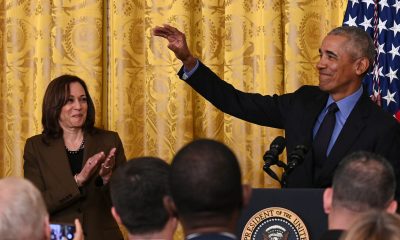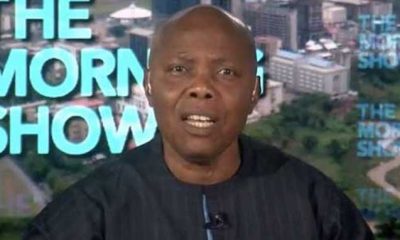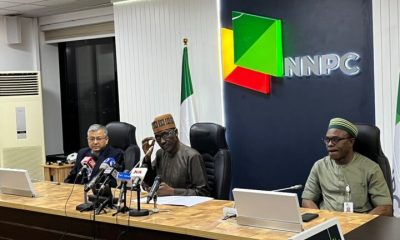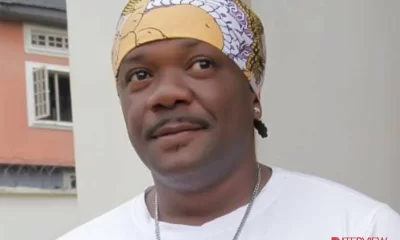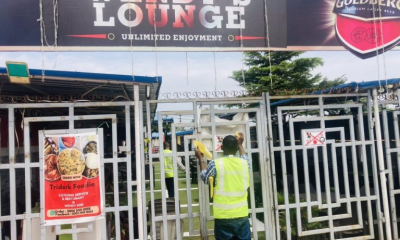Business
FG directs banks to deduct 0.375% stamp duty charges on all loans
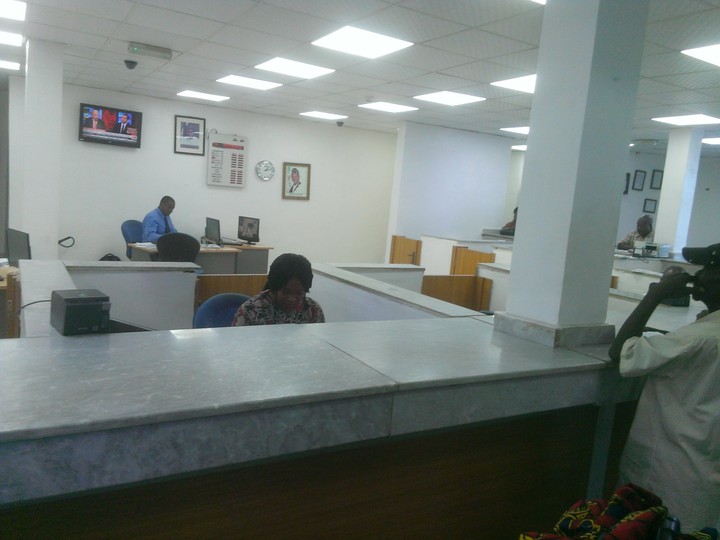
The Federal Government has directed commercial banks in the country to henceforth deduct and remit 0.375% on all loans disbursed by them.
The deduction is to be made on the principal loan amount, according to a message sent to customers by banks.
This comes as the government expands the net on transactions covered by the stamp duty charges from regular bank transfers to foreign transactions and now loans.
Recall that banks were also in January this year directed to deduct stamp duty on old foreign transactions between January 2021 to December 2023 by January 31, 2024. Before that, the electronic money transfer levy was only applicable to accounts receiving electronic deposits of N10,000 and above or its equivalent.
In a message sent to their customers on Wednesday notifying them of the deduction, one of the banks wrote:
“Dear Valued Customer,
“We write to inform you that the Federal Government of Nigeria has directed that all banks remit stamp duty on all loans.
“In line with this directive, 0.375% on every principal loan amount disbursed will be debited and remitted to the Federal Government of Nigeria.
“However, all existing approved loans remain unchanged and are to be fully repaid in line with the terms and conditions. We are committed to offering you exceptional service every step of the way.”
According to the Federal Inland Revenue Service (FIRS), Stamp Duty is an indirect tax in Nigeria governed by the Stamp Duties Act (SDA), CAP S8 LFN 2004 (as amended).
It is a tax charged for a stamp or seal applied on a written or electronic document which if executed, makes it a legal document and will be admissible in any court of law.
Last year, a former Governor of the Central Bank of Nigeria (CBN), Godwin Emefiele, disclosed that the total revenue collected as stamp duty on behalf of the Federal Government in 6 years, between 2016 and 2022, stood at N370.686 billion.
The disclosure came amid allegations by a member of the House of Representatives, Muhammed Kazaure, who claimed that a humongous sum of N89 trillion collected as stamp duty had been allegedly stolen.
Business
NNPC announces downtime on recruitment portal over unprecedented traffic
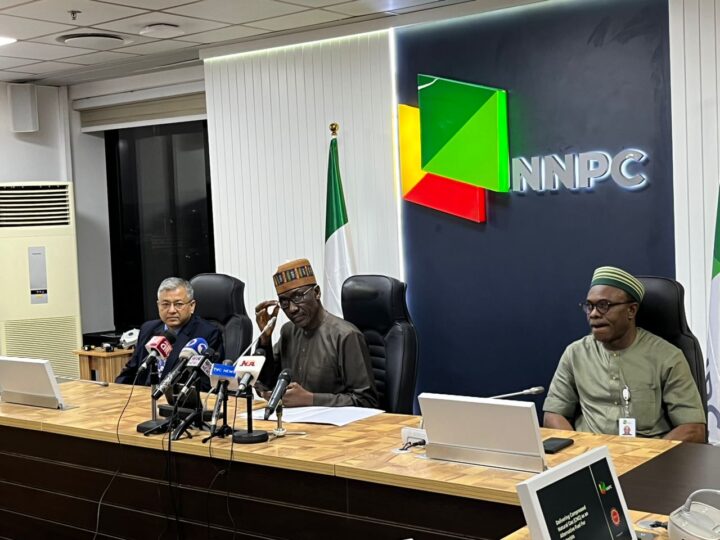
The Nigerian National Petroleum Company (NNPC) Limited has announced that its job application portal is currently experiencing downtime due to an ‘unprecedented’ surge in traffic.
On Friday, NNPC announced a recruitment exercise for qualified candidates, with the application period set to close on August 20.
Checks by Vanguard revealed that the agency’s website is displaying server error messages.
In response via X, NNPC stated that their technical team is actively working to resolve the issue.
“Due to unprecedented traffic to the NNPC Ltd. career page from applicants applying for vacancies, the site is currently experiencing slow load times,” the statement reads.
“Our technicians are working diligently to rectify the problem as quickly as possible. Please be assured that the application process deadline remains August 20, 2024.”
NNPC also reassured applicants of a transparent and merit-based recruitment process, urging capable Nigerians to take advantage of this unique opportunity.
Business
Zenith Bank seeks NGX approval to sell 5bn shares through rights issue
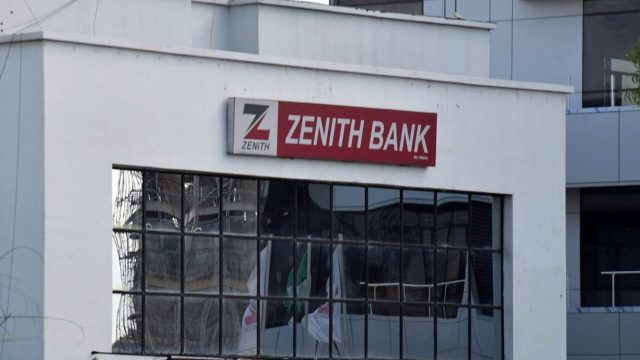
Zenith Bank Plc has sought approval from the Nigerian Exchange (NGX) Limited to sell 5.23 billion shares through rights issue to raise N188.37 billion.
According to a statement on Wednesday signed by Godstime Iwenekhai, head of the issuer regulation department at NGX, the qualification date for the rights issue is July 24.
NGX said Zenith Bank applied for the approval through Stanbic IBTC Stockbrokers Limited, the lender’s its stockbroker.
The capital market regulator said Zenith Bank plans to list a rights issue “of Five Billion, Two Hundred and Thirty-Two Million, Seven Hundred and Forty-Eight Thousand, Nine Hundred and Sixty-Four (5,232,748,964) ordinary shares of 50 Kobo each at N36.00 per share on the basis of one (1) new ordinary share for every six (6) existing ordinary shares held as at the close of business on Wednesday, 24 July 2024″.
On April 12, Zenith Bank announced plans to raise an undisclosed amount in the international and Nigerian capital markets.
According to the company, the funds shall be raised through the issuance of ordinary shares, or preference shares, whether by way of private placement, rights issue or both.
The company also said the board would propose increasing its issued share capital — from N15,698,246,893.50 to N31,396,493,787 — at the AGM.
Zenith Bank’s plan to raise capital comes after the Central Bank of Nigeria (CBN), on March 28, directed commercial, merchant and non-interest banks to increase their minimum capital requirements.
CBN adjusted the capital base for commercial banks with international licences to N500 billion, while national and regional financial institutions’ capital bases were pegged at N200 billion and N50 billion, respectively.
With a capital base of N270.75 billion, Zenith Bank needs N229.25 billion to reach the minimum capital requirement of N500 billion.
Business
‘600k households paid’ as FG resumes cash transfer scheme
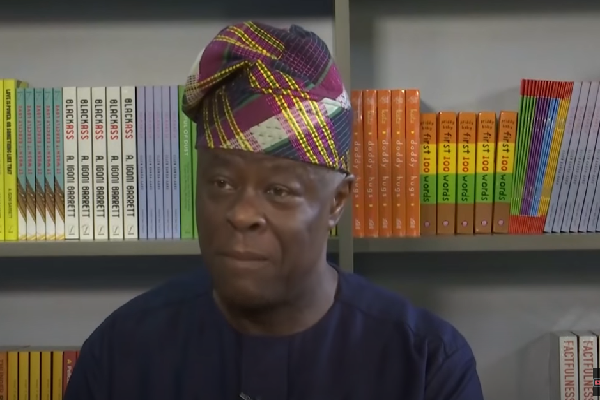
Wale Edun, the minister of finance, says over 600,000 households have benefited from the direct cash transfer programme of the federal government following the resumption of payments.
Edun spoke on Thursday in Abuja during the half-year review ministerial press briefing, themed, ‘Economic Recovery and Growth: Progress and Prospects 2024’.
On July 18, 2023, President Bola Tinubu ordered an immediate review of the conditional cash transfer scheme — an intervention initiative coordinated by the national social investment programme agency (NSIPA).
The president later suspended all programmes administered by NSIPA for six weeks, as part of a probe of alleged malfeasance in the management of the agency and its programmes.
During a radio interview session in Kaduna, Mohammed Idris, the minister of information and national orientation, disclosed the federal government’s plan to resume the intervention schemes.
Speaking at the press briefing, the minister reiterated Tinubu’s commitment to the welfare of ordinary Nigerians and the government’s efforts to ensure transparency and accountability in its social protection initiatives.
“Following the resumption of payments, over 600,000 households have already received this direct transfer this week,” Edun was quoted as saying in a statement by in a statement on by Mohammed Manga, the ministry’s director of information and public relations.
Edun said the government has made significant strides in its economic reforms, “well on its way to achieving a step-change in the revenues of the government; closely in line with the budget for 2024”.
He also announced the government’s exit from the ways and means borrowing mechanism, highlighting successes of the government’s reforms while citing a projected budget deficit of 4 percent in the 2024 fiscal year.
Edun acknowledged the temporary hardships caused by the reforms but assured that Nigerians would soon benefit from the expected outcomes.
He said the government’s “well-coordinated economic policies are beginning to yield results, evidenced by the deceleration in inflation growth, a rise in foreign investments compared to the same period last year”.
The minister said one of the major priorities of the incumbent government in the immediate term is to reduce food prices and focus on providing all the necessary support to increase local food production, given the impact of high food prices on inflation.
He said efforts are underway to achieve this goal.
The minister said with the outcome of the first half of 2024, “the economy is turning the corner.”
Edun added that with macroeconomic stability, the economy is being well positioned for sustained and inclusive growth that creates jobs, lifts millions out of poverty, and drives domestic and foreign investments that would improve the general wellbeing of the average Nigerian.
-

 Health7 days ago
Health7 days agoWhat to eat and avoid when treating malaria
-

 World1 week ago
World1 week agoComputer scientist claiming invention of Bitcoin faces criminal investigation in UK
-
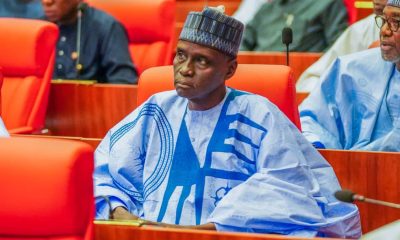
 Politics1 week ago
Politics1 week agoSenator Monguno replaces Ndume as Senate Chief Whip
-

 Celebrities1 week ago
Celebrities1 week agoMohbad’s wife claims Joseph Aloba is her son’s greatest enemy
-

 Politics1 week ago
Politics1 week agoAppeal court affirms Douye Diri as Bayelsa governor
-

 Politics1 week ago
Politics1 week agoActress Hilda Dokubo suspended as Labour Party’s Rivers chairperson
-

 Politics1 week ago
Politics1 week agoOndo LP Governorship candidate, Dr Ayodele Olorunfemi promises ₦120k minimum wage if elected
-

 Entertainment1 week ago
Entertainment1 week agoRema’s ‘HEIS’ sets record for biggest opening week on Spotify Nigeria in 2024

